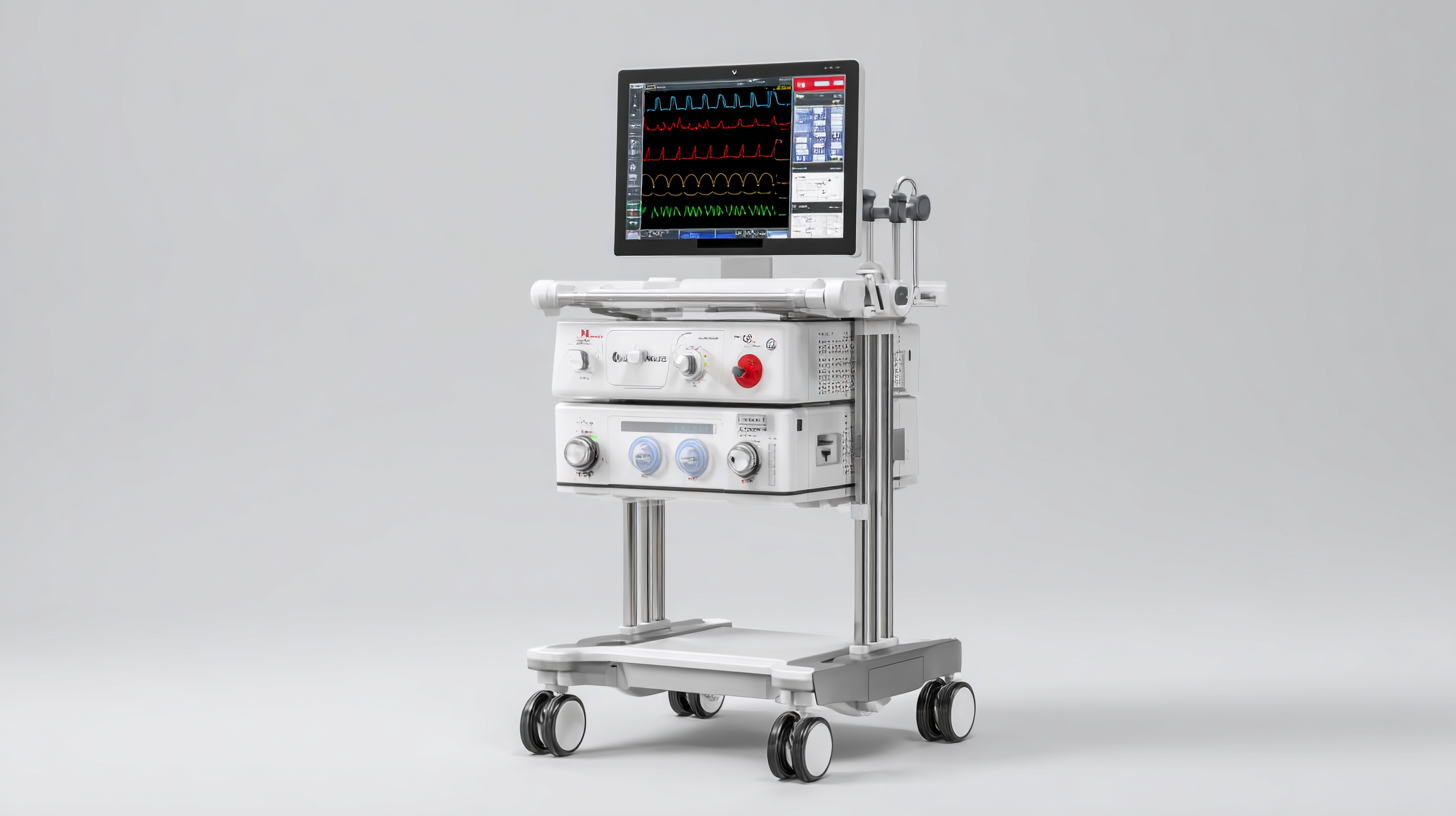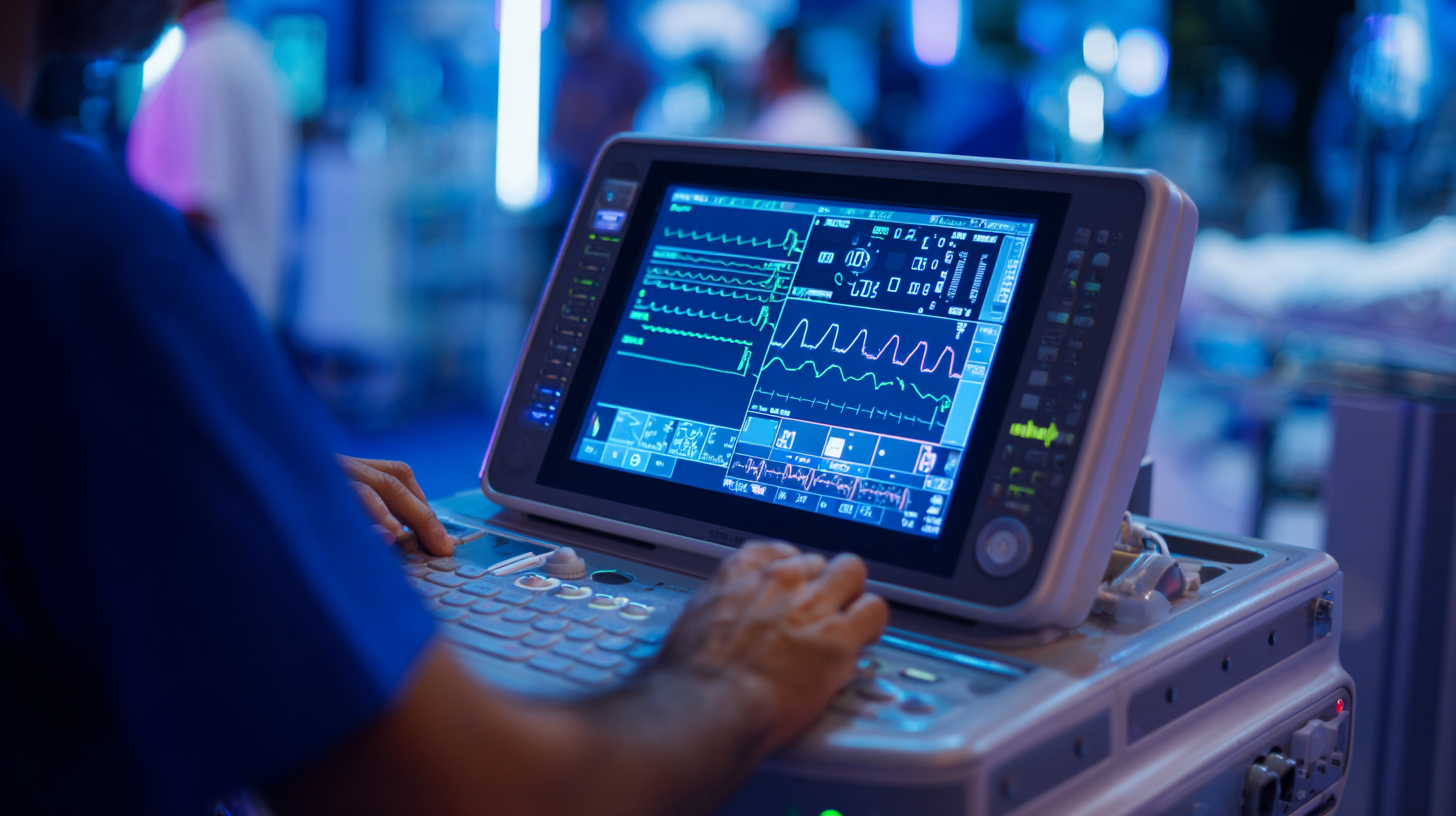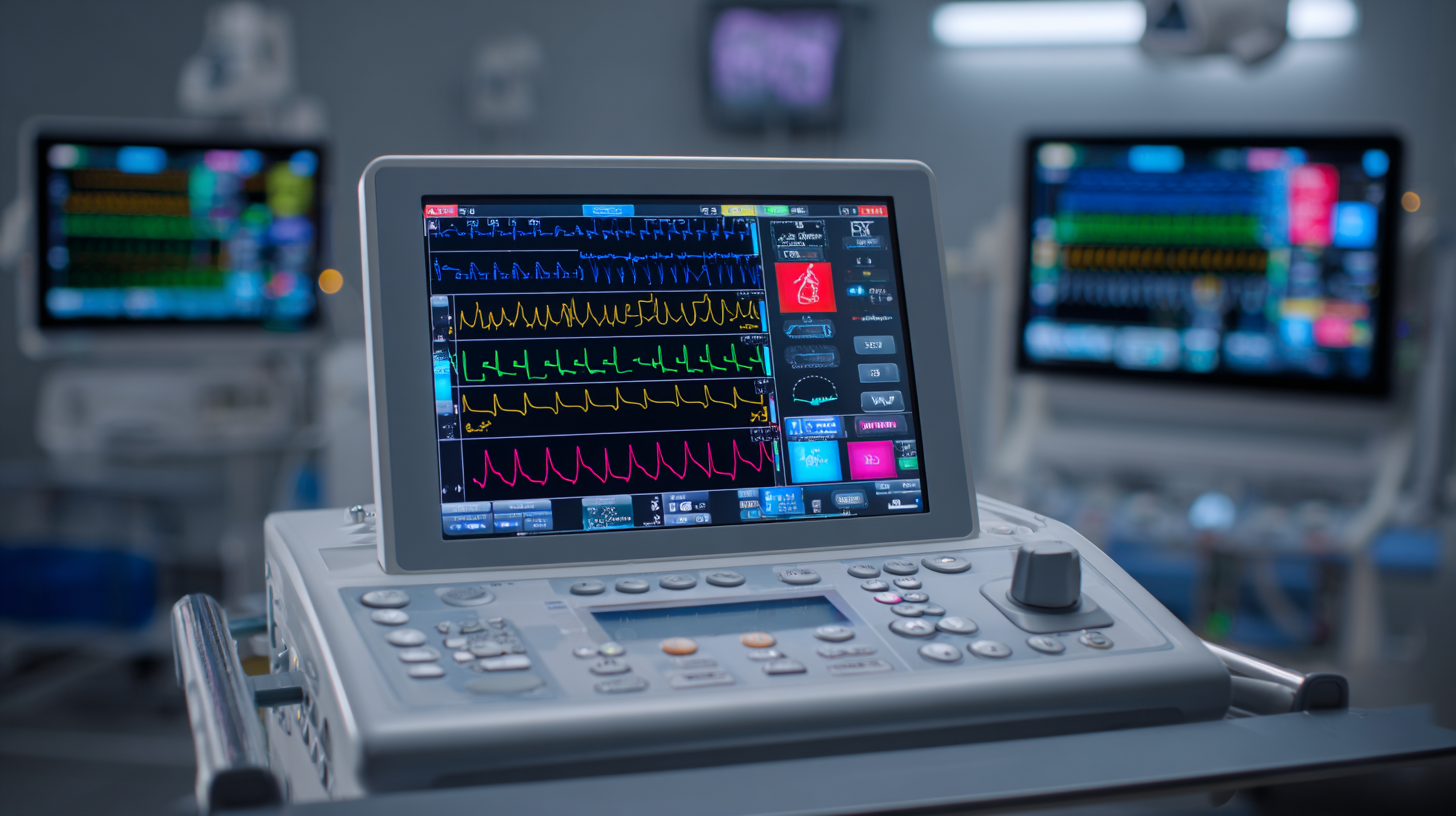Bankim Nagar, Siliguri, West Bengal
- GST NO. : 19BHDPS7640K1ZR
Top 7 Best Mobile Ecg Machines Transforming Healthcare Globally
In the dynamic landscape of healthcare technology, the emergence of the Mobile ECG Machine has revolutionized the way cardiac care is delivered, making it more accessible and efficient than ever before. These portable devices empower both healthcare providers and patients by enabling on-the-go monitoring of heart health, allowing for timely interventions and improved management of cardiovascular conditions. With the increasing prevalence of heart-related ailments globally, the demand for reliable and user-friendly mobile solutions has surged, prompting innovations that cater to diverse needs. In this blog post, we will explore the top seven Mobile ECG Machines that are transforming healthcare worldwide, comparing their features, functionalities, and overall impact on patient care. Join us as we delve into how these cutting-edge devices are not only enhancing the quality of medical services but also fostering a proactive approach to heart health management.

Emergence of Mobile ECG Machines in Patient Monitoring: A Revolutionary Shift
The emergence of mobile ECG machines has marked a revolutionary shift in healthcare, particularly in patient monitoring. As chronic diseases like hypertension and heart disease become more prevalent, the demand for continuous and accessible cardiac health monitoring has soared. These compact devices empower patients to easily track their heart activity from the comfort of their own homes, providing invaluable data to healthcare providers. This innovation not only enriches patient engagement but also facilitates timely interventions, ultimately aiming to reduce the burden on healthcare systems.
When utilizing mobile ECG machines, patients should keep a few important tips in mind. Firstly, ensure that the device is properly calibrated and charged before each use to obtain accurate readings. Secondly, maintain a consistent time and environment when taking measurements to ensure comparability over time. Lastly, it’s essential to discuss any irregularities in readings with a healthcare professional for appropriate guidance and follow-up. These practices bolster the effectiveness of mobile ECG technology and enhance the overall monitoring experience for patients.
Key Features to Look for in the Best Mobile ECG Devices: What the Data Reveals
In recent years, mobile ECG devices have revolutionized cardiac care by providing real-time monitoring and data analysis on the go. When evaluating these devices, it’s essential to consider key features that enhance usability and accuracy. According to a report by Market Research Future, the global mobile ECG market is projected to grow at a CAGR of over 20% through 2025, driven by technological advancements and increased awareness of cardiovascular diseases. Key features to look for include portability, battery life, and connectivity options. Devices with advanced algorithms that reduce noise and improve signal quality are crucial for delivering reliable results.
Moreover, the importance of user-friendly interfaces cannot be understated. A survey published by the Journal of Medical Systems indicates that 75% of healthcare practitioners prefer ECG devices that provide intuitive navigation and instant data interpretation. Additionally, integration with telehealth platforms allows for seamless data sharing between patients and healthcare providers, enhancing remote patient monitoring. With the health technology landscape continuously evolving, mobile ECG devices that prioritize these key elements will not only improve patient outcomes but also significantly transform healthcare delivery globally.

Impact of Mobile ECG Technology on Early Detection of Cardiac Issues
The advent of mobile ECG technology has significantly transformed the landscape of healthcare, particularly in the realm of cardiac care.
Traditional electrocardiograms often require patients to visit clinics or hospitals, which can delay diagnosis and treatment. With the introduction of portable ECG machines, patients can now monitor their heart health conveniently from home or on the go. This real-time capability not only empowers individuals to take charge of their health but also facilitates timely detection of potential cardiac issues.
Early detection is crucial when it comes to managing heart conditions.
Mobile ECG devices enable rapid identification of irregular heart rhythms, potential arrhythmias, or other anomalies by providing instant access to reliable data. With cloud connectivity and mobile applications, healthcare providers can remotely analyze patients' ECG readings, ensuring that critical interventions can be administered promptly. This shift toward proactive monitoring not only enhances patient outcomes but also alleviates the burden on healthcare systems by reducing emergency visits and hospital admissions related to untreated cardiac problems.
Market Trends: Growth Projections for Mobile ECG Machines in Healthcare Industry
The healthcare industry is witnessing significant growth in mobile ECG machines, with projections indicating a flourishing market. As the demand for home healthcare solutions increases, fueled by the rising prevalence of chronic conditions like Alzheimer's and dementia, the global market for home healthcare is expected to surge from $262.5 billion in 2022 to an estimated $555.6 billion by 2032, showcasing a growth rate of 7.9%. This growth reflects a broader trend wherein mobile healthcare devices, including ECG machines and smartwatches, are transforming patient monitoring and management.

In the rapidly evolving technology landscape, the smartwatch market is also reflecting impressive growth, anticipated to expand from $39.03425 billion in 2024 to approximately $233.25 billion by 2032, with a remarkable annual growth rate of 25.04%. This trend illustrates a growing consumer reliance on wearable technology for health monitoring.
Tips: When considering mobile ECG devices, look for features such as connectivity to smartphones, ease of use, and accuracy in readings. It's also essential to monitor any regulatory approvals to ensure product reliability. Engaging with user reviews can provide insights into real-world performance and satisfaction. Always consult healthcare professionals for guidance tailored to individual health needs.
Case Studies: Successful Implementation of Mobile ECG Machines in Global Healthcare Settings
In recent years, mobile ECG machines have emerged as a game-changer in the field of healthcare, particularly in remote and underserved regions. One notable case study is the deployment of mobile ECG units in rural India, where access to cardiology services is often limited. By equipping local health workers with these portable devices, patients can receive timely cardiac assessments without the need for lengthy travel to urban hospitals. This initiative not only enhances patient outcomes by facilitating early diagnosis but also reduces the burden on overextended healthcare facilities.
Another successful implementation can be observed in telemedicine setups across Europe, where mobile ECG machines are integrated into home monitoring systems for patients with chronic heart conditions. A pilot project in Spain demonstrated that patients using these devices showed significant improvements in managing their health, as remote physicians could analyze ECG data in real-time and adjust treatment plans accordingly. This approach not only empowers patients by involving them in their healthcare journey but also streamlines operation for healthcare providers, illustrating the transformative potential of mobile ECG technology in contemporary medical practices.
Top 7 Best Mobile ECG Machines Transforming Healthcare Globally
| Feature | Machine 1 | Machine 2 | Machine 3 | Machine 4 | Machine 5 | Machine 6 | Machine 7 |
|---|---|---|---|---|---|---|---|
| Weight | 200 g | 250 g | 300 g | 180 g | 210 g | 220 g | 270 g |
| Battery Life | 12 hours | 10 hours | 15 hours | 8 hours | 11 hours | 14 hours | 9 hours |
| Connectivity | Bluetooth, Wi-Fi | Wi-Fi | Bluetooth | Bluetooth, USB | Wi-Fi, USB | Bluetooth, Wi-Fi | USB |
| Data Storage | 500 ECGs | 400 ECGs | 800 ECGs | 300 ECGs | 600 ECGs | 700 ECGs | 350 ECGs |
| Price Range | $150-$200 | $100-$150 | $250-$300 | $90-$120 | $200-$250 | $180-$230 | $70-$100 |

